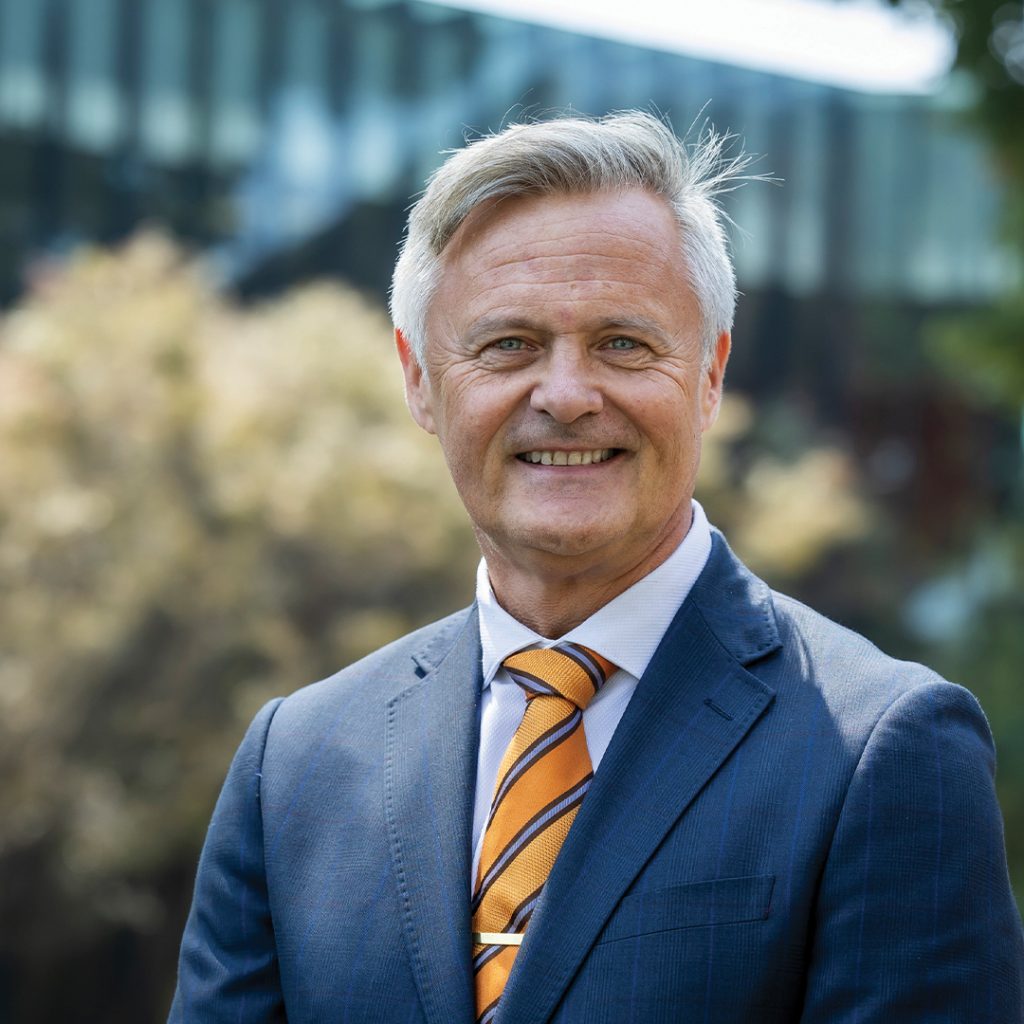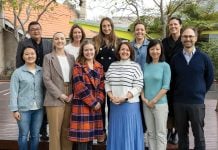In an era defined by rapid technological advancement, the importance of a broad liberal education has never been more critical. As artificial intelligence (AI) reshapes the way we learn, work, and engage with the world, at Melbourne Grammar School we are, intentionally and thoughtfully, using this learning model to cultivate well-rounded, adaptable thinkers.
A liberal education – one that encompasses the humanities, sciences, mathematics, and the arts – provides students with the intellectual agility and ethical grounding necessary to navigate an uncertain future.
Grounded in classical traditions, a liberal education focuses on ‘liberating the mind’ from narrow perspectives, rigid beliefs and preconceived notions while exposing students to a wide range of ideas, disciplines and knowledge. At its heart, it seeks to develop an individual’s capacity for analytical reasoning, ethical reflection, and articulate expression so they can engage meaningfully with complex ideas and societal challenges.
Opportunities in a ‘new’ world
Current research highlights both the rewards and risks of AI, underscoring the enduring value of human creativity, critical thinking, and ethical reasoning.
A recent report from the World Economic Forum (2024) predicts that AI will displace millions of jobs while simultaneously creating new opportunities that demand problem-solving, collaboration, and adaptability. For instance, while routine administrative roles may decline, new careers in AI ethics, human-centered design, and digital forensics are emerging, requiring a blend of technical proficiency and critical thinking. The challenge for all educators, then, is to prepare students not only with technical competencies but also with the ability to think critically across disciplines.
In this regard, a broad liberal education is indispensable. Studies, such as the 2023 report by the Stanford Institute for Human-Centered AI, suggest that students who engage with diverse fields of study are better equipped to assess complex problems, identify biases in AI-driven decisions, and apply ethical considerations to technological advancements.
For example, a student who studies both Coding and Robotics and Philosophy may be better equipped to address ethical dilemmas in AI development, such as privacy concerns in data collection or the moral implications of autonomous decision-making. As AI continues to evolve, the ability to synthesise knowledge from multiple disciplines, approach problems with ethical integrity, and communicate with nuance will distinguish the leaders of tomorrow.
Machines excel at processing data and automating tasks, but they lack human qualities such as empathy, moral judgment, and creative problem-solving. Scholars like Professor George Siemens argue that exposure to literature and philosophy fosters emotional intelligence and ethical reasoning – skills that are crucial in professions where human judgment and interpersonal relationships remain irreplaceable. A well-rounded, liberal education promotes students developing not just knowledge, but wisdom.
Equally important is the role of scientific literacy and mathematical reasoning. The ability to interpret data, evaluate the credibility of sources, and understand the principles behind emerging technologies is vital in an era where misinformation can spread rapidly. As AI-generated content becomes increasingly sophisticated, individuals with strong analytical skills will be better positioned to discern fact from fiction. The interdisciplinary nature of a liberal education strengthens this capacity, encouraging students to make connections between fields and think critically about the impact of technology on society.
Yet, the risks associated with AI also highlight the need for a broad educational foundation. For example, AI-powered recommendation systems have been shown to reinforce biases in hiring and law enforcement, emphasising the need for individuals who can critically assess and mitigate such ethical concerns.
A 2023 study from MIT’s Center for Digital Learning warns that an over-reliance on AI tools in education can lead to cognitive atrophy – where students become passive recipients of information rather than active learners. If students are not taught to independently question, analyse, and create, they may struggle to assert intellectual autonomy in an era where AI can generate essays, artwork, and even ethical arguments. This underscores the necessity of teaching students how to think, rather than simply what to think.
Preparedness for a ‘flourishing’ life
Melbourne Grammar School fosters a liberal education that balances tradition with innovation. By ensuring that students engage deeply with ideas and ways of thinking across literature, languages, history, philosophy, the sciences, mathematics and more, we are preparing them not only for the jobs of the future but for human flourishing.
A broad liberal education is not just an academic ideal; it is a necessity. In a time when AI threatens to automate many aspects of life, it is precisely those skills that machines cannot replicate – curiosity, ethical judgment, and human connection – that will define true success. Our role as educators is to ensure that students leave our institution not just well-trained, but truly well-educated. By nurturing both intellectual breadth and depth, we empower them to shape a future in which technology serves humanity for the greater good.
Matthew Maruff
Director of Learning and Research

Introducing Matthew Maruff
Matthew Maruff is the newest member of the Executive team at Melbourne Grammar School. Commencing in the role of Director of Learning and Research in January 2025, Matthew comes with an impressive array of knowledge and leadership experiences in education.
A former Headmaster of Girton Grammar School in Bendigo for ten years, most recently Matthew served as Principal Consultant for Independent Schools Victoria. He has also held senior roles at St Kevin’s College and other independent schools.
He holds a Bachelor of Arts degree, majoring in Literature and Political Science, from the University of Melbourne as well as a postgraduate degree in Education, and an Expert Master of Leadership: Organisational Learning both from Monash University.
In 2018 Matthew was awarded the prestigious Fellowship of the Australian Council of Educational Leaders (Vic).
Matthew is highly regarded within the education sector, not only for his many achievements, but also for his strong values, inspirational and determined leadership, professionalism and excellent interpersonal skills.
I am delighted Matthew has joined Melbourne Grammar School’s community and look forward to the outstanding initiatives and programs that I know will follow.
Philip Grutzner
Headmaster



